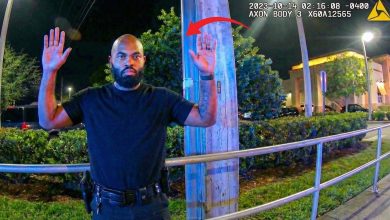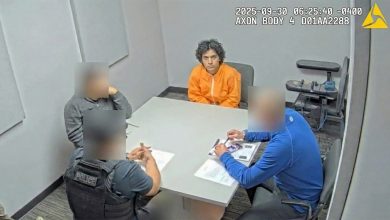North Carolina Background Checks Return Sensitive Medical Records

A Mecklenburg County Sheriff’s Office (MCSO) employee revealed to attorneys in a 2024 deposition that the agency occasionally receives sensitive and unrequested medical data during concealed carry permit background checks, including abortion and sexually transmitted disease records, according to WCNC. In response to the revelation, one state lawmaker is planning to introduce legislation limiting the type of information provided in these reports.
Republican Representative Keith Kidwell from District 90 in eastern North Carolina is showing his concern for the privacy of constituents whose inalienable rights are arguably already under undue scrutiny given the plain text of the Second Amendment. Although North Carolina residents sign an Administrative Office of the Courts form consenting to a sheriff’s office review of their history to ensure applicants are capable of safely handling a firearm when applying for a carry permit, certain medical information is considered far too invasive and irrelevant to forming the necessary determination.
”We’ve got to do everything we can to control that… What I’m going to do is get with the drafting folks and we’re going to look at legislation and see how we curtail this so that only the information that’s necessary for law enforcement to make decisions on concealed carry is the only thing that they’re provided with,” said Kidwell.
Discovery of the privacy violation occurred when attorney Ron Shook was deposing witnesses in a 2024 lawsuit alleging the MCSO failed to issue concealed carry permits in a timely matter. A sheriff’s office employee detailed the wide range of information handed over by health providers during the background check process, many of which contain data not requested by the agency, such as whether a woman’s cesarean section records, their number of pregnancies, and more.
“They’re also releasing information such as, ‘Has a person had an abortion? Do they have any sexually transmitted diseases? Really invasive personal information that the sheriff doesn’t need in order to make a decision about whether or not they should be able to carry a firearm. It’s entirely too much. It’s invasive,” Shook said.
A sheriff’s office spokesperson pointed out, however, that the agency does not control what information is turned over, noting that records are issued at the health provider’s discretion.
“Sometimes hundreds of pages are sent, but these may contain no evidence suggesting the applicant is unfit to safely handle a handgun, and the (Concealed Handgun Permit) is granted… Other times, only a few pages are sent, yet they reveal significant concerns, such as evidence of addiction or mental health issues, which could lead to a denial. Even records from providers not specializing in mental health, such as an OB/GYN, may be relevant. For example, discussions about an abortion might indicate severe depression or suicidal thoughts, raising concerns about the applicant’s ability to handle a handgun safely,” the MCSO spokesperson said in a statement.
State law confounds the issue by allowing the release of “records concerning the mental health or capacity of the applicant” and requiring the sheriff’s office to consider “physical or mental infirmity” in determining carry permit eligibility, a confusion Representative Kidwell, known for sponsoring prior legislation to eliminate the permitting process, intends to clarify in drafting the new legislation.
“Anything that goes beyond the necessity that the sheriff or sheriff’s deputies would need to make that decision is invasive in my mind … It’s inappropriate for them to be provided that information because it’s not necessary to make the decision they need to make. That’s blatantly none of their business and should not be provided … One of the things I do constantly is to try and look at legislation and say, ‘What’s the worst thing that can happen with this?’ And that’s what I try to address … We’ll have to come up with a different format, a different form, something along those lines so that the medical records are not released inappropriately,” says Kidwell.
The North Carolina General Assembly formally convenes its next session January 29.
Proponents of any permitting process beyond the Second Amendment foolishly claim the requirement somehow makes communities safer, however, violent crime is already illegal, and I don’t think criminals bent on murder are deterred by a permit to carry whatever device they intend to use, be it a firearm, knife, pressure cooker or vehicle. This type of situation is an understandable result of making laws to chase other laws that were made to violate other laws rather than simply enforcing the law and allowing Americans the unfettered means to protect themselves and their families. Confused yet? You should be. That’s exactly where they want you.
Read the full article here








